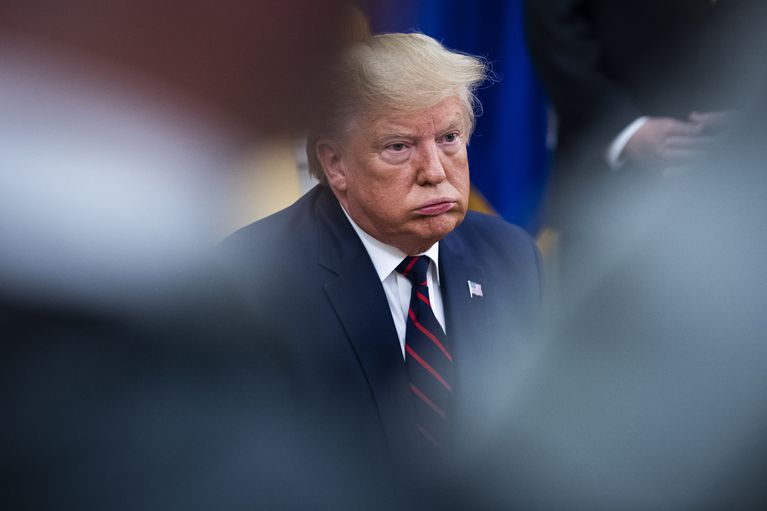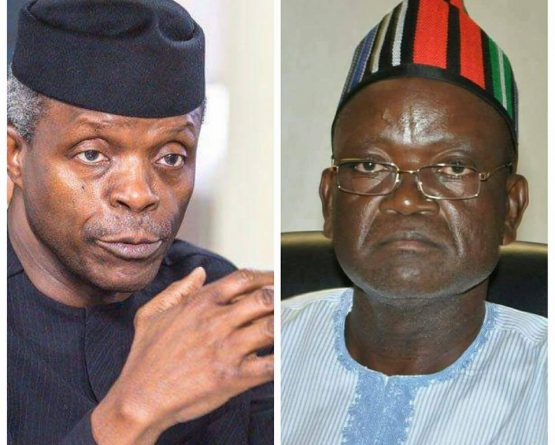drtayooke@gmail.com
It is that time of the year in the electoral cycle, when Americans go to the polls to elect the country’s 46th President this same day, November 3, 2020. America’s presidential election is set in stone; on the first Tuesday after November 1 every four years. Thus, even the date of the next general election for the 47th president is already known, including the swearing-in date, January 20. There is no commission or body sitting on their high horse to “announce” the date of the election. Peaceful transfer of power has been the hallmark of American democracy since 1797. Unlike in other republics, the constitution cannot be hurriedly altered, or amended to accommodate the ambition of a sitting president who suddenly discovers he is indispensable, and feels obliged to answer the ‘popular demand’ to extend his stay in office, as the country cannot possibly cope without his leadership. Spare a thought for Yoweri Museveni (Uganda), Pierre Nkurunziza (Burundi), Paul Kagame (Rwanda), Vladimir Putin (Russia), and as you read, ballots still counting, Alassane Ouattara (Ivory Coast) to mention but a few. Even here, in Nigeria, there was an audacious attempt by former President Olusegun Obasanjo to gain an unconstitutional third term in 2007, which was stoutly resisted.To everyone’s relief, he backed down and bowed out.
In one of his rhetorical flourishes, President Trump has indicated that he might not leave the White House if his loss could be attributed to “irregularities” in the voting process. Let us be absolutely clear, Trump will leave office, willy-nilly, come rain or shine if, as expected, he loses. America is not a banana republic – yet. Trump talks through his hat quite a lot, and people generally know it, even if they find that extremely disconcerting. One striking feature of the election is that Americans do not elect their presidents directly. Voters go to the polls not to vote for president, but to elect “delegates” who will proceed to the “electoral college” to determine the president. The “college” is not a physical structure; it is an assumption in the minds of the delegates who could, in theory, overturn the will of the electorate and declare support for a candidate other than the one who actually won. That exists only in the realm of fantasy though. Winners and losers are decided and declared on a state-by-state basis, whose mandates are carried forward to the “college”. The will of the people ultimately prevails.
To be successful, a candidate needs to win more than half the total delegates: 270. Thus, a candidate may not have the popular mandate and still become president, as happened with Donald Trump, who lost to Hillary Clinton, his Democratic challenger, by a whopping three million votes in 2016. Clinton could not, however, muster enough delegates in the so-called “swing states” to secure victory. Can you imagine that scenario playing out peacefully anywhere else? It is one of the quirks of America’s presidential politics. The states in the union are allocated delegates depending on their size. The larger a state, the larger the delegates. This was deliberately done from the onset to keep the larger states in the tent, so, none ever thinks of seceding due to ‘marginalisation’ or anything of the sorts. Whether or not this is still necessary in the modern age is a moot point. Lest I forget, there is a provision for early voting in America too. “Election Day”, in the context of America, is a misnomer. Early voting exists in states that choose to start voting early. Over 90 million (or 2/3) have already cast their ballots prior to today as a matter of fact. There is no centralised electoral body running the show like Nigeria’s Independent National Electoral Commission. Each state conducts its own elections and can adjust the national timetable for its own convenience. This sounds weird to a lot of people in this part of the world, but it is open democracy in action. It is one of the enduring layers of American exceptionalism.
This column has been highly critical of the Trump presidency from the get go. So, it should not come as anything surprising to be reading this. Doubtful it will influence the voting in America, but it sure will inform public opinion at home and abroad. Trump is by far the most polarising American president this century. Nonetheless, as much as this column has been critical of him, so too many others have been vociferous in their support of him, including people living in Trump’s “shithole countries”. They see in him a deeply flawed character, but they also see a man who says it as it is. A man who is not trying to pull a wool over anybody’s eyes like the conventional politicians are wont to doing. But, neither can he stop the smooth-talking bluster of a salesman that he was in another life. Trump is a man who has no time for political correctness when others spend a lifetime spinning, and dancing on the head of a pin. Given the weight of the mainstream media’s scrutiny of him all along, it is even amazing that he was still in contention at all. He has done a remarkable job of helping American businesses stay competitive. He introduced a tax cut which helped pump money into the economy, and boosted employment across board, but at the expense of increased budget deficit now standing at $1tn, and the US public debt of almost $25tn, up from $21tn when he took office. None of these economic numbers will count in the election. Trump’s mishandling of the coronavirus pandemic from which 250,000 Americans have died (a quarter of the world’s total with only four per cent of the world population), has become pivotal in an election that has turned into a referendum on the issue.
Coronavirus will do to Donald Trump what the economy did to President George H.W. Bush, the 41st president of the US in 1993. Bush had been riding high in the opinion polls, having defeated Saddam Hussein in his attempt to annex the neighbouring Kuwait in an ill-advised invasion of the country in August 1990. Bush was widely admired and lauded on the international stage for his statesmanship. His re-election to a second term on the back of his numerous foreign policy triumphs was seen as a foregone conclusion until his Democratic challenger, Bill Clinton, a young, brash, inexperienced and ‘unknown’ quantity, turned the table, famously declaring, “It’s the economy, stupid!”. This time, for Trump, Democrats and the mainstream media have saturated the airwaves with the subtle equivalent, “It’s the coronavirus, stupid!” Trump’s appointment of an ultra-conservative justice Amy Coney Barrett onto the US Supreme Court last week will not be enough to save him from defeat. On the contrary, it will embolden the anti-Trump Republicans to vote for his opponent, Joe Biden, safe in the knowledge that the Supreme Court is secured for the conservatives for a generation.
By presenting himself as the mouthpiece of the common man, Trump played on, and pandered to the worst instincts in humanity; selfish, egocentric, hedonistic, narcissistic, me, my taste, my preference above all others. He paints and glories in a dreary notion of a society that does not, and should not exist.
Finally, as Trump stares down the barrel of defeat, an American expat, resident in Nigeria, who only knows me through this column, took exception to my “harsh” characterisation of the US President in a previous write-up. He then challenged me to a $100 bet on the president’s re-election, which I quickly doubled in a counter-offer. Well, if you are reading this, my friend, tonight’s Champagne in my yard is on you.
Source: Punch Newspaper




